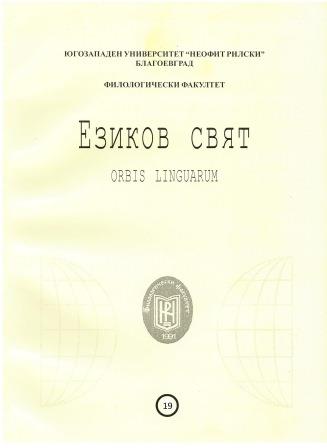ПОЕТИЧЕСКИЯТ НОВОГОВОР В ТВОРЧЕСТВОТО НА ДЕСАНКА МАКСИМОВИЧ И ЕЛИСАВЕТА БАГРЯНА (20-ТЕ И 30-ТЕ Г. НА ХХ В.)
THE POETIC NEW SPEECH IN THE WORKS OF DESANKA MAKSIMOVICH AND ELISAVETA BAGRYANA (1920S AND 1930S)
Subject(s): Language and Literature Studies, Philology, Theory of LiteraturePublished by: ЮГОЗАПАДЕН УНИВЕРСИТЕТ »НЕОФИТ РИЛСКИ«
Keywords: tradition; classical verse; modernism; poetry written by women
Summary/Abstract: The article examines the work of the Serbian poet Desanka Maksimovich and the Bulgarian poet Elisaveta Bagryana, written between the two world wars. The two poetesses were formed under similar conditions and close cultural situations. This implies common trends and artistic horizons. Desanka Maksimovich and Elisaveta Bagryana are also the first serious representatives of the "female" writing in poetry. The specific modernism of the two authors is analyzed against the background of the poetic avant-garde at the time. The modern writing of Desanka Maksimovich and Elisaveta Bagryan demonstrates a violation of the classical form of the verse (number of syllables, verse length, correct rhyme), use of excessively long verses, long words and overcoming of the traditional understanding of verse harmony (rhythm). This makes the two poets unexpectedly different and fresh voices against the background of the male lyrical poetry of the same time. The poetic books of Desanka Maksimovich and Elisaveta Bagryana became literary phenomena in the time between the two world wars. However, they also became an example to several generations of poetesses, which were born of their energy. The Serbian and Bulgarian lyre make an important contribution to the development of female poetry in the region of the Balkan cultures and their poetic images.
Journal: Езиков свят - Orbis Linguarum
- Issue Year: 19/2021
- Issue No: 2
- Page Range: 055-063
- Page Count: 9
- Language: Bulgarian

